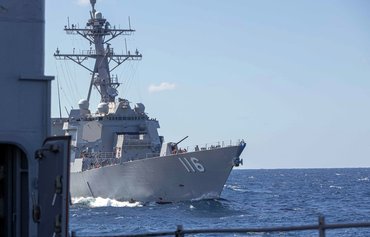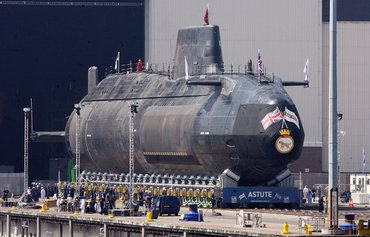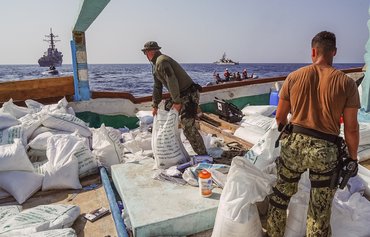US Navy and US Coast Guard patrol boats recently conducted an exercise in the waters of the Arabian Gulf to test the MK-60 Griffin guided-missile system.
The annual Griffin Missile exercise, conducted from December 10th to 14th, is part of an array of deterrence measures in the Gulf region that aim to further secure maritime waters, experts told Al-Mashareq.
The upgraded MK-60 Griffin guided-missile system is capable of targeting small boat attacks of the type attempted by the Islamic Revolutionary Guard Corps' Quds Force (IRGC-QF).
According to Vice Adm. Jim Malloy, who heads up the US Naval Forces Central Command and the US Navy's 5th Fleet, the system improves combat capability on the 10 US patrol craft operating in the area.
These patrol craft are "ready to work with regional partners and respond to threats" and are able to manoeuver and strike from a distance, he said.
A Bahraini military official with Combined Task Force 152, which operates as part of the Combined Maritime Forces in the Gulf, told Al-Mashareq that "the missiles are capable of destroying any target within a few seconds".
They have been tested under various conditions, he said, including at high humidity levels and with high waves, and scored direct hits on all targets.
"The missiles are laser-guided, so they can hit targets as small as a one-metre long boat," he added.
A deterrent to Iran
The upgraded Griffin missile system (GMS) provides deterrence in the Gulf, said Ali al-Salmi, a researcher at al-Sharq Centre for Research and Studies in Abu Dhabi, noting that Iran can no longer compete in terms of weaponry.
Training exercises and missile tests deter actions that undermine Gulf security, and affirm the US's intent "to honour its commitments and obligations regarding the security of its Gulf allies in the face of Iran's threats", he told Al-Mashareq.
Al-Salmi said it is important to note that security measures taken by the US and Gulf states are defensive, rather than offensive or hostile, and are designed to protect the security of territorial waters.
With the introduction of this type of missile, the US Navy has, over the past two years, succeeded in reducing the number of threats in Gulf waters, said Saudi military expert and al-Qassim University senior researcher Saad al-Ghamdi.
The recent GMS test serves as a warning to Iran that it will no longer be easy for it to transport its weapons to other countries, he told Al-Mashareq.
These missiles "have a long range, are highly accurate in hitting their target and are interoperable among ships of various sizes and at varied ranges, and thus allow for the securing of vast areas", he said.
The missile system also is capable of responding to a "swarm attack" by small or medium-sized boats, al-Ghamdi added.

![US Navy and US Coast Guard patrol boats conducted an annual test of the MK-60 Griffin guided-missile system in the Arabian Gulf from December 10th to 14th. [Photo courtesy of US Naval Forces Central Command]](/cnmi_am/images/2020/01/01/21687-US-Gulf-missile-600_384.jpg)






